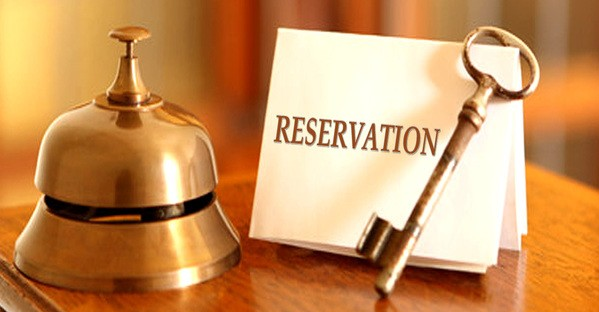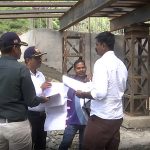Jammu and Kashmir has no respite from unemployment crisis (32.8%). This is said to be the highest in India as reported by the Centre for Monitoring Indian Economy (CMIE). No quick fix approach can confront the rising challenge. Notably, the subject of reservation has received much spotlight afresh in public and political circles. The discourse needs to be win-win, with the sympathetic noises on view in relation to the all-important matter, not allowed to reduce the situation to a social crisis with no escape route.
The framework of the reservation came up through S.O. No. 176, dated 15 March 2024, providing for around 60% opportunities to the reserved category. It was geared towards doing away with the socio-economic disparities and to foster inclusivity among all citizens. However the grievances, which are brought to light now months past the policy’s implementation, imply more than meets the eye. Not easy to rule out are the political motives — apart from social motives — driving the anti- reservation endeavor.
Ours is a democratic polity, and by extension a welfare set-up, which calls for abiding by the core principles of equality and equity aimed at the social and economic upliftment of the all people irrespective of their caste, creed, faith and status. Seen dispassionately, the reservation policy in place manifests those sublime principles. Will our democratic credentials not take a severe beating if all citizens do not get a level playing field to combat their adverse living conditions?
Weeding out poverty and inhospitable conditions people live in is a primary task of every truly democratic polity. This presumably cannot be overlooked by a sympathetic government — to dent its own image. The provision of subsidized facilities on rice and electricity; medical health support; old age pension and housing facilities (to the low income families) — all are a hallmark of a genuine welfare administration.
Intending to distribute opportunities equitably among all sections of society, the reservation policy champions a balanced resource allocation with the long-term noble goal: meet the needs of the marginalized communities; not at the expense of any citizen expectedly. Providing additional 10% reservation to the less represented populace — say the Koli community, Paddari Tribe, Gadda Bregmans, Pahari Ethnic Group, — must be viewed as a welfare measure.
That the protests have surfaced after the passage of several months leaves a lot to be desired. But why did nobody resist the framework at its birth during the Lieutenant Governor’s administration? Protesting ideally should be a last resort option if the authorities fail to listen to the objections.
And it is a sad moment that when this sensitive matter is being examined judicially and studied by a Sub-Cabinet Committee, protests are on view. Jammu and Kashmir is beset with massive unemployment, particularly in rural and remote areas with inadequate infrastructure, lagging education, and limited job opportunities — adding fuel to fire. We have no dearth of highly educated people, including those whose upper age limit for a government job, no longer exists. The scarcity of job opportunities is exacerbated by the lack of a private sector. Resultantly, the aspirants languish in disillusionment and despondency, one of the major causes of drug addiction and remaining adrift.
There are plenty of other bigger issues confronting the society: electricity crisis, unsafe drinking water, drug traffic, cyber crimes, insufficient medical facilities in rural areas, and rampant corruption. These challenges can be bested by political leaders. While electricity falls short of meeting the growing demand, especially over the course of winter months, its revenue collection is not known for smooth sailing. Scores of consumers are said to be defaulters in paying bills from years together; several consumers, apparently in collusion with certain quarters, use the service at will.
Drinking water service grapples with systemic faults. It is utilized by thousands of people circumventing codal norms brazenly while a significant number of law abiding consumers end up taking purportedly unhygienic and contaminated drinking water. Recently this author came across some people at a social gathering. They, in a wide-ranging conversation, casually pointed out that a pipeline, placed in a nearby stream, has been carrying running water of the pollution – riddled stream for over a decade to several villages; no filtration is in sight.
The magnitude of corruption is unspeakable. It is practiced in a number of ways — the reports of bribery, delay tactics, blackmailing, recruitment paper leakage, biased allotment of works, selective treatment in service delivery, donation, and so on, do galore. These sordid acts put social harmony at stake by cultivating the feelings of alienation and victimization. Also widespread economic inequalities come about with the gap between haves and havenots widening nonstop.
The situation should serve as a cautionary tale for the regional political leaders. They are mandated to generate employment avenues for the job seekers; promote skill development, better education infrastructure, industrialization facilities; eliminate corruption and seek social cohesion. Politicizing issues effectively creates divisions and impedes progress. It is poor form for the leadership to brush aside these reforms and instead plunge headlong into politicizing some issues.
The reservation issue bears one worrisome and urgent aspect: the extension of benefits for generations in case of a beneficiary. It is widely believed that reserved category beneficiaries keep on capitalizing on the reservation provision despite migrating to live in posh areas and getting elevated socially. Preventing this supposedly lifelong edge of such beneficiaries over general category citizenship, is imperative to bail out the protesting population.
(Author is RK columnist and teacher by profession. Feedback: [email protected])








